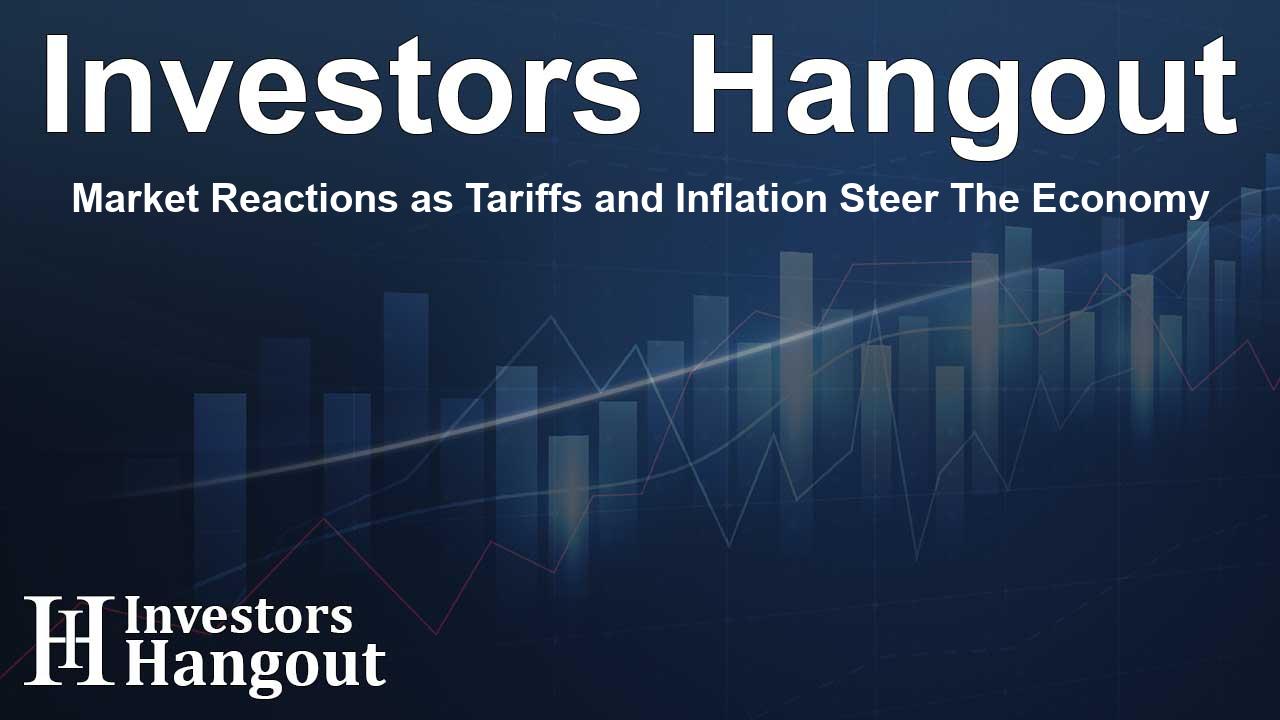Market Reactions as Tariffs and Inflation Steer The Economy

Market Dynamics Amid Tariff Decisions
The recent tariff implementations have ignited a cascade of reactions in the financial markets, particularly as investors anticipate Fed Chair Powell's upcoming congressional testimony. The US dollar has rallied against other currencies, reflecting confidence tied to tariff gains. Meanwhile, stock markets are showing mixed results, with fluctuations limited, suggesting uncertainty among investors regarding future economic conditions influenced by these tariffs.
Impact of Tariffs on Inflation Concerns
As President Trump moves forward with heightened tariffs on key imports such as steel and aluminum, inflation worries are rising for the Federal Reserve. These tariffs, now set at 25%, come during a period when inflation expectations are already increasing. The Fed finds itself in a delicate situation as market indicators signal a creeping inflation rate, affecting its ability to maintain control over monetary policy. Surveys from reputable sources are revealing an upward trend in consumer inflation expectations, intensifying pressure on policymakers.
In light of these developments, Powell has cautioned against rate cuts in the near term while suggesting that further adjustments may still occur later this year. However, investor confidence appears shaky, with worries that only minimal cuts are anticipated, showing signs of a lack of faith in the Fed's forthcoming policies.
The Upcoming Powell Testimony
All eyes are now on Powell as he prepares for his two-day testimony before Congress. Removed from centering solely on rate cuts, his discussions are likely to touch upon the Fed's stance amidst escalating tariffs and heightened import restrictions. Given the diplomatically fraught environment with China and others, investors increasingly question whether the Fed will indeed implement significant cuts this year at all.
Insider expectations suggest Powell will navigate this complex narrative with caution, potentially downplaying any discussions of rate hikes, knowing well that such comments could provoke discontent from the administration. The tests of market sentiment lie in how investors interpret Powell's words and whether they sense an underlying signal of volatility stemming from paused monetary policies.
Gold Surges while Stock Markets Stabilize
Despite mixed sentiments across different asset classes, gold is experiencing a remarkable surge, recently hitting new heights, reflecting the protectionist economic shift under Trump. As gold reached an intra-day record peak, traders have responded with caution, yet resilience remains in sectors like oil, benefitting from geopolitical tensions widening the supply gaps caused by sanctions.
Simultaneously, the stock market has displayed less volatility in reaction to these tariff measures, with only selective stocks experiencing significant price movements. The absence of widespread selloffs suggests investors may be reassessing the prevailing economic conditions, concentrating on earnings reports and projections rather than solely focusing on tariffs.
This robustness in the equity market is further sustained by strong earnings performances observed during the last quarter that surpassed initial estimates. However, any major statements from Powell or unexpected inflation data could shift this currently stable narrative towards uncertainty.
Challenges in Foreign Exchange Markets
On the foreign exchange front, the pound is struggling under the weight of diverging monetary policies as highlighted by recent commentary from the Bank of England. The dovish remarks from the BoE have increasingly limited the pound's strength, contrasting sharply with the US's assertive tariff strategies.
The combination of domestic demand issues and heightened global tariffs is pressuring the pound into a weaker position, creating challenges for UK firms that may find it difficult to pass increased costs onto consumers amid faltering demand.
Frequently Asked Questions
What are the main effects of Trump's tariffs?
Trump's tariffs have led to increased inflation risks, impacting costs for consumers and creating uncertainty in the stock market.
How is the Federal Reserve expected to respond?
The Federal Reserve is likely to maintain a cautious approach, with potential rate cuts expected later in the year as inflation concerns rise.
What does Powell's testimony mean for markets?
Powell's testimony may provide insights into the Fed's stance on interest rates and inflation, influencing market sentiment significantly.
Why is gold performing well amid tariffs?
Gold is seen as a safe haven asset during times of economic instability, hence its rise as tariffs increase market volatility.
What challenges does the pound face currently?
The pound is struggling due to slow domestic demand and dovish monetary policy signals from the Bank of England amidst rising global tariffs.
About The Author
Contact Lucas Young privately here. Or send an email with ATTN: Lucas Young as the subject to contact@investorshangout.com.
About Investors Hangout
Investors Hangout is a leading online stock forum for financial discussion and learning, offering a wide range of free tools and resources. It draws in traders of all levels, who exchange market knowledge, investigate trading tactics, and keep an eye on industry developments in real time. Featuring financial articles, stock message boards, quotes, charts, company profiles, and live news updates. Through cooperative learning and a wealth of informational resources, it helps users from novices creating their first portfolios to experts honing their techniques. Join Investors Hangout today: https://investorshangout.com/
The content of this article is based on factual, publicly available information and does not represent legal, financial, or investment advice. Investors Hangout does not offer financial advice, and the author is not a licensed financial advisor. Consult a qualified advisor before making any financial or investment decisions based on this article. This article should not be considered advice to purchase, sell, or hold any securities or other investments. If any of the material provided here is inaccurate, please contact us for corrections.
